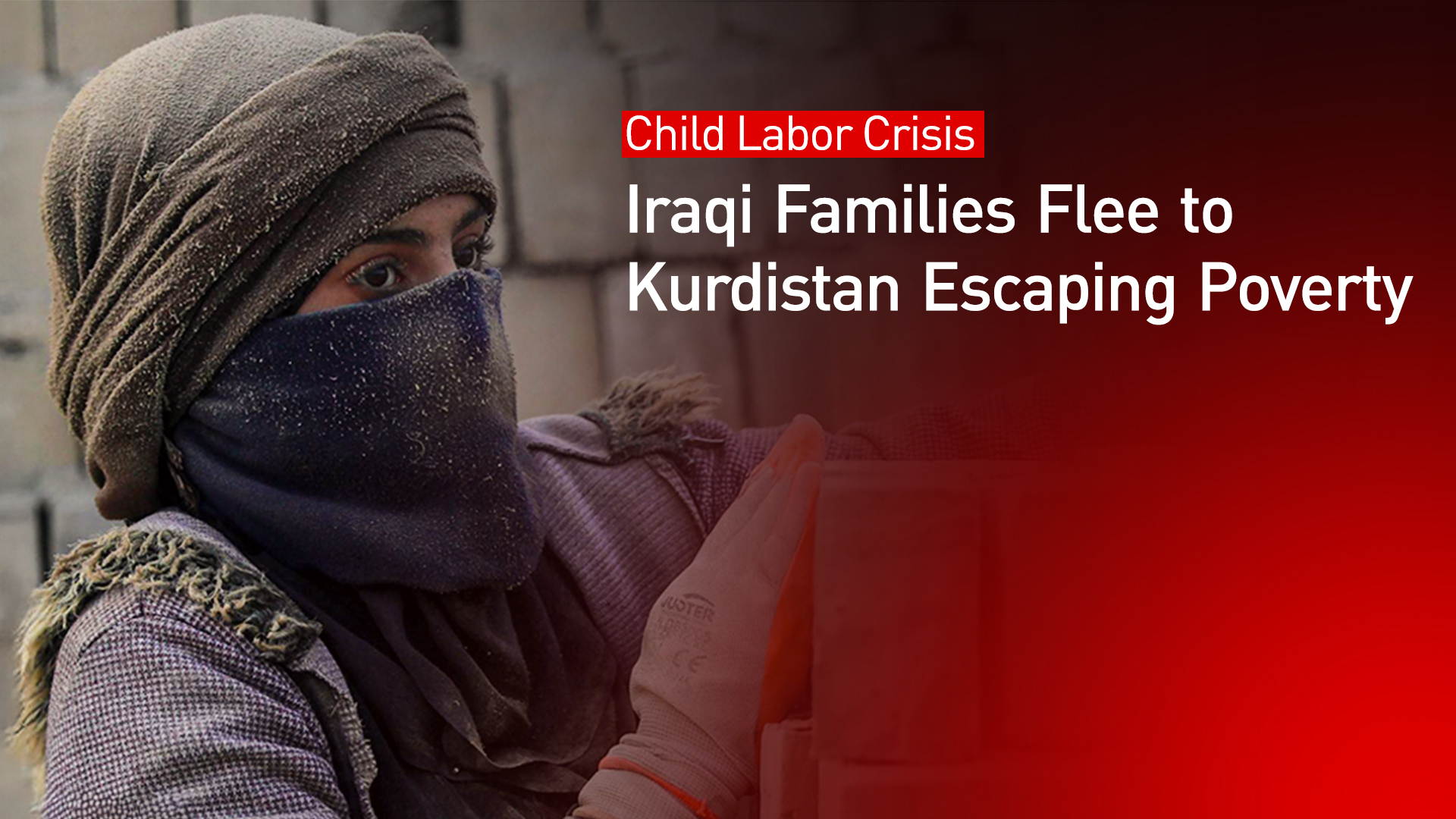Child Labor Crisis: Iraqi Families Flee to Kurdistan to Escape Poverty
On World Day Against Child Labor, Iraq faces a growing crisis, with over 9,000 children working, mostly from displaced families. Many flee to Kurdistan seeking safety. Without urgent action, Iraq’s next generation remains at risk.

By Ahora Qadi
Erbil (Kurdistan24) – On the occasion of World Day Against Child Labor, alarming statistics and heart-wrenching testimonies shed light on a growing crisis: Iraq is witnessing a surge in child labor, forcing thousands of families to flee toward the Kurdistan Region in search of dignity, safety, and opportunity.
According to international agencies, over 138 million children worldwide between the ages of 5 and 17 are engaged in labor, often under hazardous conditions. In Iraq alone, over 9,000 children are currently working—many of them from economically devastated or displaced families.
A 13-year-old boy from Mosul, now working in Erbil, told Kurdistan24:
“I left school to help my family. We came to Erbil because we had nothing left in Mosul. I never wanted this life.”
Kurdistan: A Refuge, but Not Without Challenges
Recent data from child protection organizations in the Kurdistan Region indicates that over 270 displaced or refugee children are working on the streets and traffic intersections of Erbil alone.
Naif Suleiman, head of a child protection NGO, emphasized that even work between 15 and 18 must not harm a child's physical, emotional, or educational wellbeing.
Kurdistan24 also spoke with Yusuf Chawshin, Director of Social Monitoring in Erbil, who confirmed that a joint task force involving social researchers and youth police is now investigating in child labor out on the streets.
“We’ve requested the Interior Ministry to take legal steps to stop children from working in traffic zones,” he said. “If networks are found exploiting them, targeted measures will be taken.”
Zakia Said Saleh, spokesperson for the KRG Ministry of Labor and Social Affairs, reiterated the cabinet's efforts to reintegrate street-working children into the education system.
“Although there are no unified statistics, the number of working children has decreased compared to previous years,” she noted.
Child Labor Rooted in Iraq’s Worsening Crisis
For many Iraqi families, Kurdistan offers a last refuge. The economic collapse, institutional neglect, and deteriorating security situation in parts of Iraq have left thousands with no option but to migrate north.
“We see hundreds of children each month arriving with families escaping from Baghdad, Mosul, and Basra,” said a local aid worker in Erbil. “They’re not looking for handouts. They’re looking for safety—and a future.”
Despite these efforts, child labor remains a structural issue, closely tied to poverty, displacement, and lack of social protection. Global and local calls for reform have urged Baghdad to act—but for many families and their children, hope lies in the shelter of the Kurdistan Region, where they can reclaim their right to education, safety, and childhood.
As the world marks June 12 as a global reminder to end child labor, the call in Iraq and Kurdistan is louder than ever: without collective action, Iraq’s next generation risks growing up in the shadows of hardship.